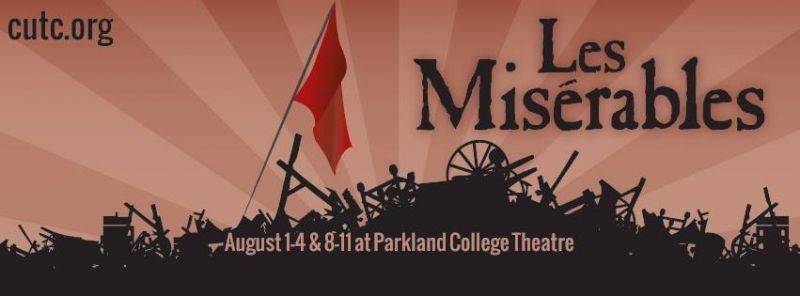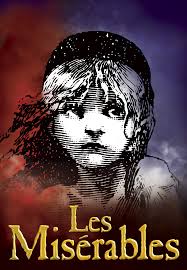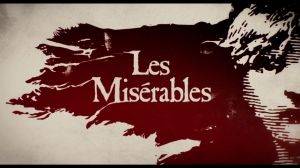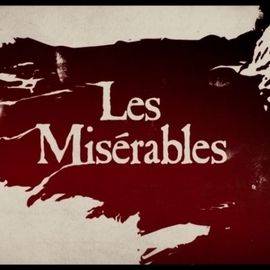The summer theatre season is winding down, but Champaign-Urbana Theatre Company isn’t done yet. In fact, they’re about to open one of their most ambitious productions in recent memory. Les Miserables will grace the stage at Parkland College Theatre starting August 1 under the direction of Stephen Fiol. I was lucky enough to catch up with Mr. Fiol recently, and here’s what he had to say about his cast, his conductor (the esteemed Aaron Kaplan), and this classic musical.

Smile Politely: How did you become involved in CUTC’s production of Les Miserables? Is this your first CUTC production, or have you worked with the organization previously?
Stephen Fiol: This is my first production with CUTC. Although I expressed interest in becoming involved a year ago, other directors were selected for the productions. But a little more than a year ago Aaron Kaplan, a frequent conductor for CUTC and other theatre venues in central Illinois, wrote to me to ask if I would be interested in directing Les Miserables with him as conductor/music director. I have known Aaron since he came to UI to work on his Master’s Degree in conducting. He is a first-rate musician and conductor and knows the Broadway musical theatre literature. Aaron was familiar with my stage directing work for the Opera Program at Krannert, but we had never worked together. It was a request I could not pass up. Happily, the CUTC Board accepted our application.
 SP: When you and I first met, you were directing The Game of Love, which is a relatively small “chamber musical” at the Station Theatre, which is a very small space. Obviously, you’ll be using a larger venue and a bigger cast for Les Miserables. Does that change your approach as a director?
SP: When you and I first met, you were directing The Game of Love, which is a relatively small “chamber musical” at the Station Theatre, which is a very small space. Obviously, you’ll be using a larger venue and a bigger cast for Les Miserables. Does that change your approach as a director?
Fiol: Going from a cast of 11 to 55 is substantial, and certainly places new demands on a director. There are intimate scenes in Les Mis, and so the directorial approach becomes focused and intimate in scope as in a chamber work, but there are also scenes of 20–30 and a few of all 55. Such larger scenes require understanding the full stage, all performers, in one moment, as one thought, and then identifying the individual moments between a few characters that may be needed to enrich the scene. Most directors hold a preference for chamber versus larger venue productions. There are also children in the production, and I feel they require a different approach, a style of directing that is specific, but encourages a child’s sense of freedom: being a respectful adult but not a dictator.
SP: Tell me a little about your interest in Les Miserables. Does the impetus to direct it come from a love for the show itself, the challenge of directing it, or a combination of the two?
 Fiol: I have seen my former students perform in both the Broadway and touring company productions of Les Mis, so I have a certain affection for the work. But I was challenged to tackle this production, in part, by the thought of limited technical options applied to a show that traditionally enjoys — and most might think requires — remarkable technical support. I hope the audience will be pleasantly surprised.
Fiol: I have seen my former students perform in both the Broadway and touring company productions of Les Mis, so I have a certain affection for the work. But I was challenged to tackle this production, in part, by the thought of limited technical options applied to a show that traditionally enjoys — and most might think requires — remarkable technical support. I hope the audience will be pleasantly surprised.
SP: As previously mentioned, you have quite a large cast for this show, and I noted that you have essentially double cast most, if not all, of the roles. How does one rehearse a show of this scope when understudies are cast in other roles?
Fiol: We have double cast almost all of the ‘named’ roles. I felt that we could not jeopardize this production in the event that those with major roles became ill or experienced a family emergency and became unable to perform.
Your question identifies one of the major challenges of this production in CUTC’s summer slot. Double casting requires more rehearsal time. And for those who are double cast, more of their free time is taken with learning additional lines. Add to this the fact that summer schedules for performers and staff are impacted by vacations, day jobs, weddings, required out-of-town travel for work, and so on. The logistics of finding adequate time for rehearsing even single-cast shows are daunting, so double casting makes this even more difficult. It behooves a director to be organized, efficient, punctual, and effective.
SP: Other than the name-brand appeal of the show, what is the big draw for audiences in Champaign-Urbana? What does this show have to offer our community?
Fiol: First, I can promise a top-notch musical experience. The performers are some of the finest singing actors from the community and the University of Illinois Opera Program, and they will be supported by what Aaron Kaplan, our conductor, calls his ‘A list’ for the 21-piece orchestra. And this is also the first ‘adult’ version of Les Miserables performed in the Champaign/Urbana area. Finally, the intimacy of the Parkland Theater will allow everyone to see and hear in a way that larger venues that typically offer this production cannot provide.
 SP: At this point in the rehearsal process, is there any moment in particular that you’re really looking forward to an audience seeing? Something that stands out?
SP: At this point in the rehearsal process, is there any moment in particular that you’re really looking forward to an audience seeing? Something that stands out?
Fiol: There are too many to mention, but when the entire group opens up on “One More Day” and the Finale of Act Two, the sheer fullness of 55 glorious voices can stop your breath. And when Little Cosette sings “There Is a Castle on a Cloud,” everyone’s heart will break.
~~~~~
A hearty thank-you to Mr. Fiol for spending some time with us, and best wishes to his enormous cast on this enormous undertaking. Should you be in the mood for a musical experience where, frankly, more is more, Les Mis will run August 1 through 11 at Parkland College Theatre. For more information, visit the CUTC website.








